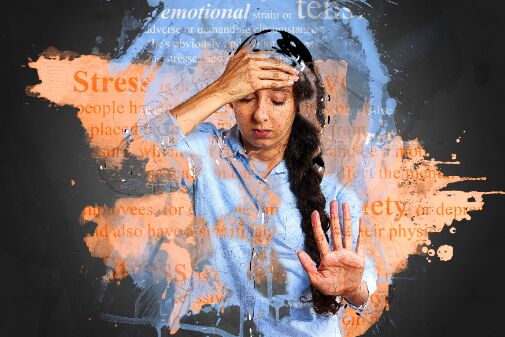A disorder across the divide
The glaring neglect around mental health — further propelled by inequalities abounding today’s world — has been impacting treatment opportunities and well-being of affected individuals

World Mental Health Day is celebrated internationally each year on October 10 to talk about mental health education and awareness, and to advocate against social stigma. The announced theme for World Mental Health Day 2021 is 'Mental Health in an Unequal World'.
We truly live in an unequal world, and the COVID-19 pandemic has made this disparity even more apparent. With the wealthy becoming wealthier, and the poor becoming poorer, there is a huge number of people living under poverty all around the world. The inequality is also due to race and ethnicity, sexual orientation and gender identity, and the lack of basic respect for human rights in many countries — especially for the individuals living with mental health conditions. Such inequalities have a grave impact on people's mental health.
Mental health help and services are basic rights of an individual, and yet, between 75-95 per cent of people with mental disorders in low- and middle-income countries are unable to access mental health services. Even the high-income countries have the lacunae they need to fulfill. India has 0.75 psychiatrists per 1,00,000 population, while the desirable number is anything above three psychiatrists per 1,00,000 population. Our country's requirement for other mental health professionals like psychologists (clinical psychologists, counseling and rehabilitation psychologists, psychiatric social workers, etc.) is at nearly 20,250 but, presently, we have only 898 psychologists against the 1,00,000 population.
Sadly, the expenditure allocated by countries towards mental health in the overall health budget is grossly disproportionate worldwide. India's annual expenditure on healthcare is 1.15 per cent of the GDP of which, less than 1 per cent is spent on mental health.
Many individuals with mental illness do not receive the treatment they deserve due to stigma and discrimination. The gap between the 'haves' and the 'have nots' grows ever wider, and there is continuing unmet need in the care of people with a mental health problem.
Is mental health even important to invest in and focus on?
Mental health includes our emotional, psychological, and social well-being. It affects how we think, feel, and act. It also helps determine how we handle stress, relate to others, and make healthy choices for ourselves.
It is necessary for our functioning, achievements, and balanced wellness to live to our fullest potential. Not focusing on mental health leads to a massive loss in productivity in life. A recent WHO-led study estimates that depression and anxiety disorders cost the global economy USD 1 trillion each year due to lost productivity.
What is the importance of celebrating WMH day?
Mental health is one of the most neglected areas of public health. About one billion people are living with mental disorders; three million people die every year from the harmful use of alcohol, and one person dies every 40 seconds by suicide. Social stigma, discrimination, and human rights abuses of people with mental health conditions further precipitate the situation of mental health disorders.
How can you celebrate this day and spread awareness?
We can all do our bit by being a part of this bigger movement.
As an individual: Take care of your mental health with a mental health routine.
At home: Support your loved ones who may be struggling. Enable a communicative and supportive environment.
In the community: Do not spread myths about mental health. Create awareness on reducing stigma.
In schools: Educate young minds to understand their thoughts, feelings, emotions, and behaviors better from the beginning.
At workplaces: Support employees from all walks of life by creating an environment of inclusivity.
How can we bridge the gap between the classes and masses when it comes to mental health access?
Telepsychiatry: It has helped open the avenues of providing help even in distant rural places, especially during the pandemic, when the movement was restricted.
Infrastructure: Currently, there is a paucity of specialists and hospitals. In a government hospital, the fewest beds with the poorest amenities are reserved for psychiatry patients. We need more mental health setups, more specialists, and awareness to drive home the fact that mental health is important for all.
Insurance for the mentally ill: The cumulative cost of seeking help over the years can be huge.
More rehabilitation facilities: Those recuperating from mental health conditions often need an in-between safe haven to recuperate and rebuild before integrating into mainstream society.
Reserving jobs: Mentally ill people are discriminated against in jobs. They can, with the right treatment and approach, perform at par with others.
Bring psychiatrists to the forefront to help make mental health a mandate in healthcare.
LGBTQIA members need specially trained mental health practitioners to understand their issues and concerns.
We can all do our bit by taking out five minutes for our mental health each day and inculcating practices involving balanced nutrition, rest, exercise, and meditation.
Send your questions to [email protected]



